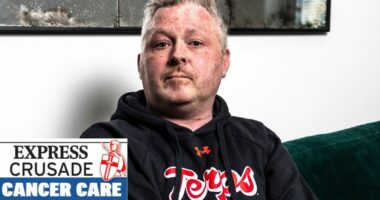Share this @internewscast.com
New research, involving 1,000 adults, revealed that 21% believe people who go to therapy are ‘mentally weak’, a figure that escalates to 25% among Gen Z. As a result of this ongoing stigma, one in three have refrained from seeking mental health support. In fact, 60% of respondents believe this enduring stigma deters struggling individuals from seeking necessary help.
Over a third said they fear being judged if they opt for professional help while a quarter worry it could negatively impact their career prospects. As a result, over half prefer to tackle issues independently, with 36% citing societal pressure and stigma as a key reason. Many admitted they would avoid going to therapy as they worried about reactions from friends and family. Some confessed they would even avoid telling their partner.
Fernando Madeira, president and CEO of BetterHelp, which commissioned the research and released its global State of Stigma report to mark Mental Health Awareness Month, commented: “Mental health stigma is deeply rooted in societal attitudes and misconceptions.
“Many people fear judgment from their peers and family, believing seeking therapy is a sign of weakness. As a result, people often feel uncomfortable sharing their struggles or seeking the support they need.
“We exist to champion the well-being of everyone in the UK – and envisage a future where everyone can get the help they need, when they need it.”
Among those who have never accessed therapy, 14% said they avoided it due to fear of judgment from family or friends, and 35% pointed to a lack of social support as a key barrier.
Practical obstacles also play a significant role. Nearly half (49%) said finding mental health support is difficult, 41% cited cost as a barrier, 21% reported poor access to providers, and 19% said they didn’t know how to begin the process.
The study highlighted that stigma is particularly pronounced among Gen Z, despite their disproportionate mental health challenges. This group is more likely than any other age group to view therapy as a sign of weakness.
They are nearly twice as likely as Baby Boomers to experience mild to moderate anxiety (47% vs. 25%) and more than four times as likely to suffer from severe anxiety (24% vs. 7%). Additionally, only 39% of Gen Z participants reported feeling happy, compared to 54% of Millennials and 61% of Baby Boomers. And nearly a third of Gen Z respondents showed signs of moderate to severe depression.
BetterHelp therapist Richard Whitenstall added: “Gen Z face pressure from social media to project a perfect life, which can lead to unrealistic expectations, fear of judgement and many hiding their struggles, which fosters stigma.
“Growing up in environments where discussing mental health is taboo further reinforces this stigma, making it harder to seek help.”















